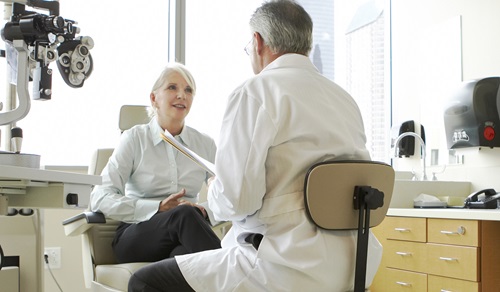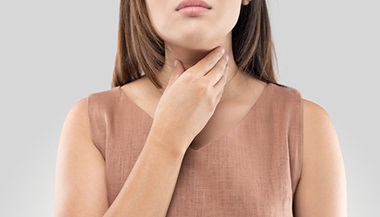Why Are My Eyes Itchy? Answers From an Expert
Reviewed By:
For many people, the warmth and beauty of spring are accompanied by irritated, burning and, sometimes, swollen eyes and eyelids. These symptoms, often attributed to allergy season, can be caused by other factors in the environment.
If you are one of the many who suffer from itchy eyes, understanding the cause is the key to treatment and relief.
Ophthalmologist Irene Kuo, M.D., of the Wilmer Eye Institute, Johns Hopkins Medicine, explains the cause and the methods to keep in mind to help relieve your itchy eyes.
Eye allergies, whether seasonal or year-round, are often the cause of itchy eyes. These allergies can be triggered by pollen or pet dander. Irritants like dust and smoke, or products such as lotions, makeup or contact lens solutions can also cause symptoms similar to those of eye allergies. An allergist can conduct an allergy test to determine the specific allergens that are causing you discomfort.
Learn about treatment for seasonal allergies.
Don’t Rub Your Eyes!
The most obvious measure to take may be the most difficult: Avoid rubbing your eyes. If you rub your already-irritated eyes, you can add more allergens such as pollens and pet dander. Constant rubbing of the eyes can even cause a break in the top corneal layer (epithelium), causing pain and potentially leading to infection.
Itchy-Eye Relief
Once allergies are determined to be the cause of your itchy eyes, you and your doctor will work together to find a treatment plan that works best for you. The plan may include:
- Avoidance and Removal. Protective measures during high-pollen season could go a long way to providing relief from itchy eyes.
- Close windows in your car or at home, and wear wrap-around sunglasses outdoors to avoid contact with pollen.
- Use a dehumidifier to control potential mold in your home.
- Shower each night to remove accumulated pollens on skin, eyelids, hair and your face. Be sure to wash your hands after petting animals.
- Change bedding more frequently.
- Cold Compress. If you are dealing with a mild case of allergy-related itching, a cold cloth or compress over the eyes can help temporarily ease the discomfort.
- Artificial Tears. Frequent use of chilled over-the-counter, lubricating eye drops can relieve symptoms.
- Anti-allergy Eyedrops or Oral Medications. For many people, allergy relief eyedrops, or oral medications that contain antihistamines or mast cell stabilizers, can ease symptoms. These can be obtained over-the-counter or your doctor can prescribe them.
- Allergy Immunotherapy. A treatment called sublingual immunotherapy involves daily administration of allergy drops at home. You are treated with the allergens you are sensitized to, and over time, become more tolerant of those allergens.
- Keep your eyes lubricated often with artificial tears.
- Make sure to rub your contact lenses during cleaning every night. Wash the case and change the solution inside every day. Do not “top off” with solution. Start with a clean case and clean solution every time you remove your contact lenses.
- Consult with your eye doctor to consider a new replacement schedule for your contact lenses if the irritation does not lessen. Daily disposable contact lenses may also be an option.
If these treatments do not help, a visit to your eye doctor can help determine if something else is the cause of your allergies. Conditions such as blepharitis — an inflammation of the eyelid — or dry eye syndrome can also cause eye irritation. They require a treatment plan specific to those conditions.
Contact Lens Hygiene
If you wear contact lenses, it’s important to change them as often as prescribed. Allergens as well as bacterial products can stick to soft contact lenses.
Remember that in addition to any treatment you receive, the best way you can help prevent worsening a case of itchy eyes is to avoid touching or rubbing them.
Treatment Wilmer Eye Institute Cornea Division

Johns Hopkins experts in cornea and external eye disease can help diagnose and treat conditions including blepharitis, dry eye syndrome and more.







